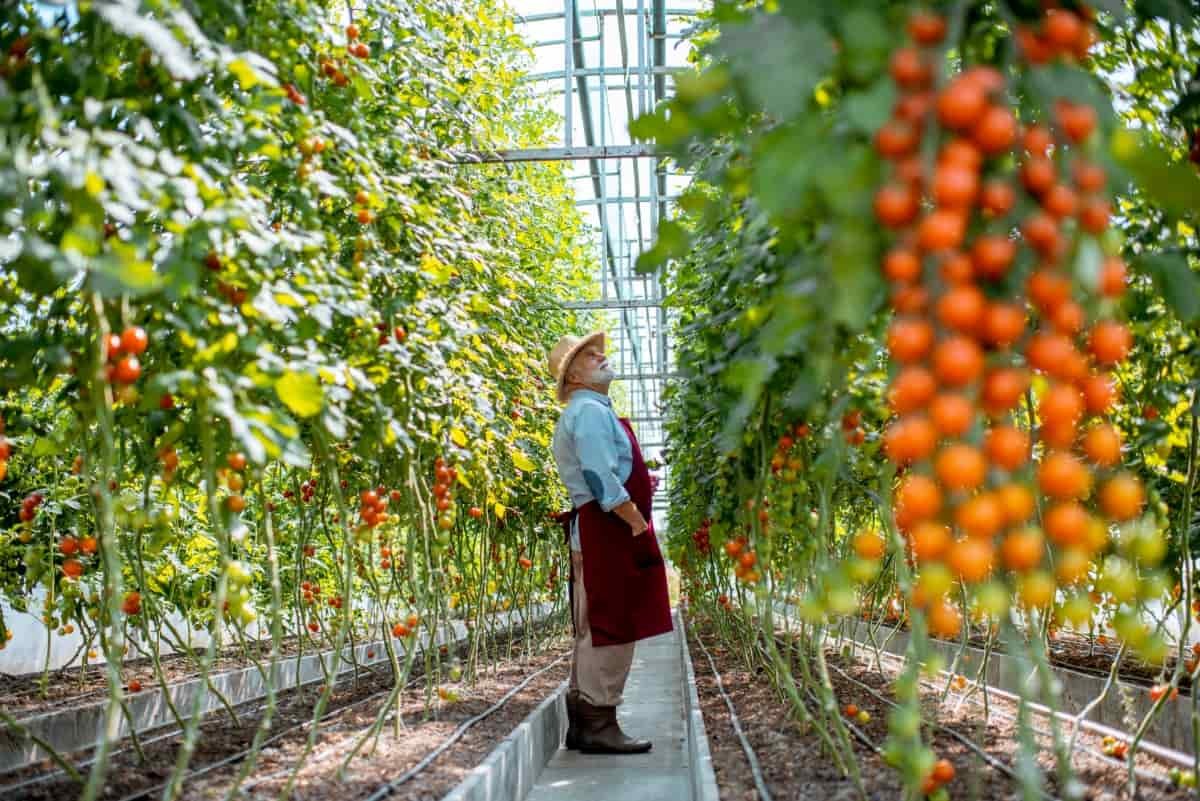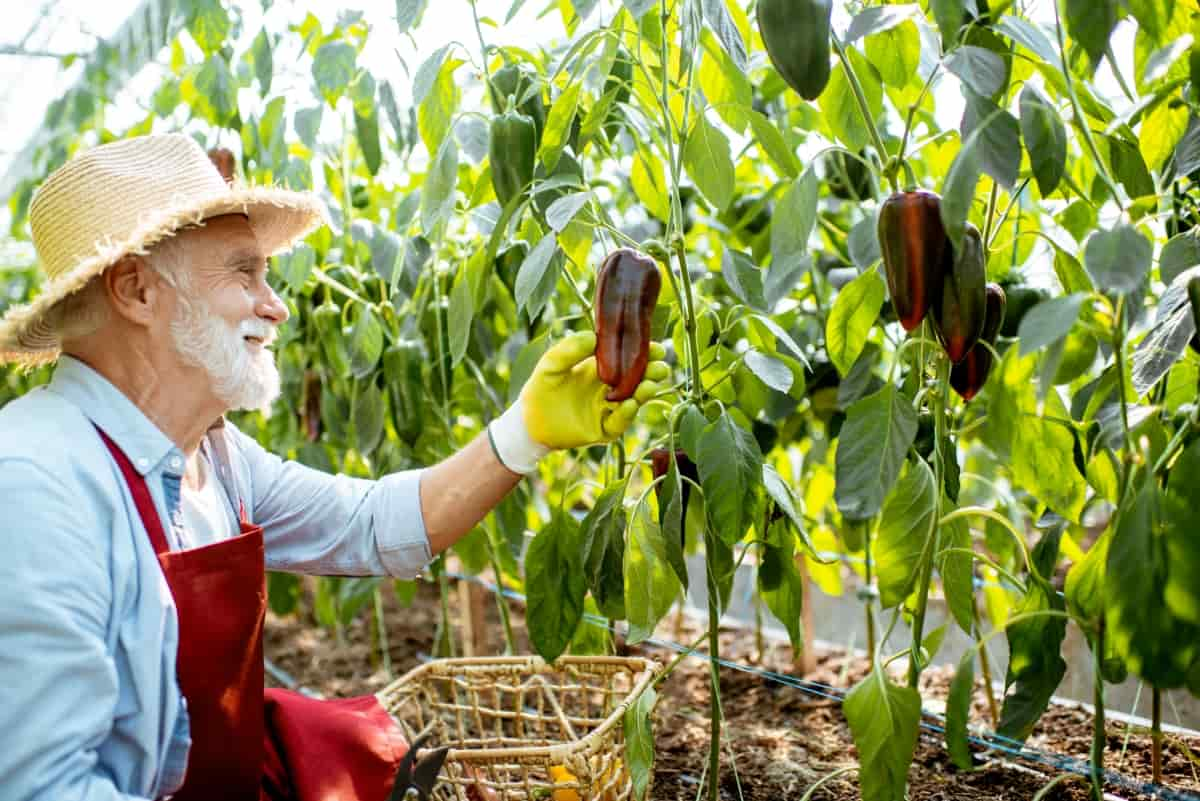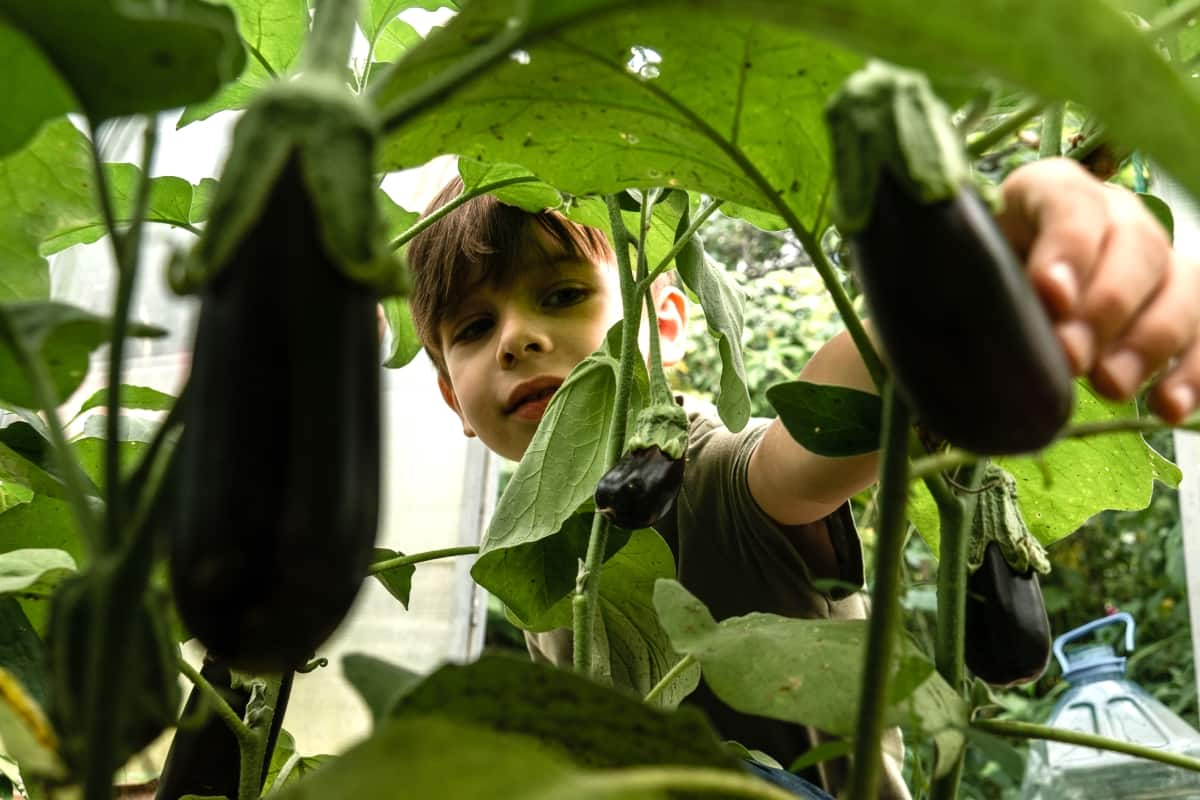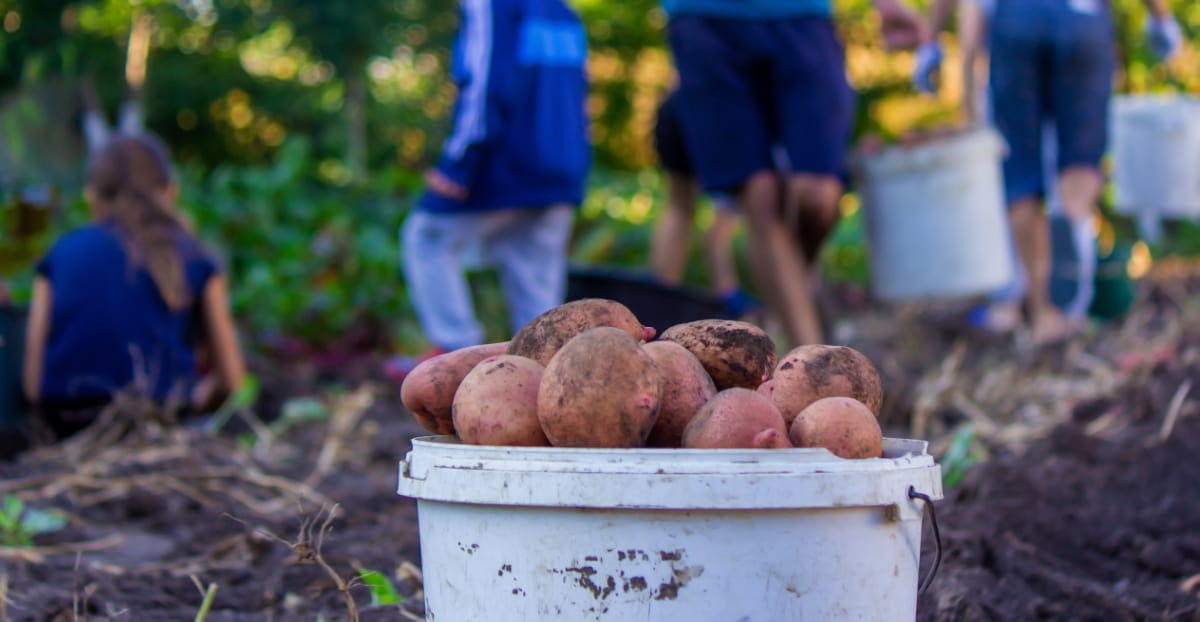The goal of organic cultivation is to make a self-sustaining ecosystem where crops, animals, and humans can coexist in harmony. By promoting biodiversity and conservation, organic farmers aim to produce healthy, nutritious food while protecting the environment for future generations. Choosing organic produce also means supporting local farmers who prioritize sustainable practices that benefit both the environment and human health.

Principles of Organic Agriculture
The fundamental principle is promoting biodiversity, which means cultivating a variety of crops and utilizing natural ecosystems to maintain balance. This helps create resilient and sustainable agricultural systems that benefit both the environment and farmers. Another important principle is soil health preservation. Organic farmers focus on enhancing soil fertility through practices like crop rotation, cover cropping, and minimal tillage.
By prioritizing soil health, organic agriculture improves long-term productivity while reducing the use of synthetic fertilizers or pesticides. Furthermore, organic farming emphasizes animal welfare by providing livestock with access to pasture and ensuring they are raised in humane conditions. This not only supports the ethical treatment of animals but also contributes to healthier food products for consumers.
Soil Health and Management
Healthy soil is the main factor for successful organic farming. By focusing on soil health and management, farmers can ensure their crops thrive naturally without relying on synthetic chemicals. The key principle in organic agriculture is maintaining and improving soil fertility through practices like crop rotation, cover cropping, and adding organic matter such as compost or manure. These methods help enhance soil structure, water retention, and nutrient availability for plants.
In addition to enhancing fertility, managing soil health also involves minimizing erosion by using conservation practices like contour plowing or planting windbreaks. This helps protect the topsoil from being washed away during heavy rains or strong winds. Prioritizing soil health not only benefits the environment but also leads to healthier crops with higher nutritional value for consumers.
Organic Crop Rotation and Diversity
By rotating different crops seasonally, farmers can naturally control pests and diseases while replenishing soil nutrients. This technique helps break pest cycles and reduces the need for chemical pesticides. Diversifying crops not only improves soil health but also enhances biodiversity on the farm. Planting a variety of crops can attract beneficial insects, pollinators, and wildlife that contribute to a healthy ecosystem.

Additionally, diverse cropping systems help reduce soil erosion and improve water retention. Farmers practicing organic crop rotation often see improved yields and quality of produce over time. The balanced nutrient levels in the soil from varied crops lead to healthier plants with increased resistance to environmental stressors like drought or extreme temperatures.
Natural Pest and Weed Control Methods
The effective method is companion planting, in which certain plants repel pests or attract beneficial insects. For example, planting marigolds alongside vegetables can deter nematodes. Another eco-friendly approach is using physical barriers, such as row covers, to protect crops from unwanted intruders. Additionally, introducing predator insects like ladybugs and lacewings can help control pest populations naturally. This method not only prevents pests from reaching the plants but also promotes better air circulation and temperature control.
Implementing crop rotation also plays a vital role in preventing pest build-up by interrupting their life cycles. Moreover, mulching with organic materials helps suppress weed growth while enriching the soil. Additionally, introducing predatory insects such as ladybugs or lacewings can help to control pests in check naturally. These beneficial bugs feed on harmful pests without causing harm to the crops.
Composting and Organic Fertilizers
Composting involves the decomposition of organic matter like kitchen scraps, yard waste, and manure to create nutrient-rich humus for plants. By recycling these materials, farmers can reduce waste while improving soil structure and water retention. Organic fertilizers are natural sources like compost, manure, bone meal, or seaweed.
These fertilizers provide essential nutrients to crops without harmful chemicals or synthetic additives. They help promote microbial activity in the soil and enhance plant growth naturally. Using composting techniques and organic fertilizers not only benefits the environment by reducing chemical runoff but also results in healthier produce for consumers.
Water Conservation Techniques in Organic Farming
Utilizing techniques such as drip irrigation and rainwater harvesting can help reduce water usage while maximizing efficiency in crop production. Drip irrigation systems deliver water to the plant roots, minimizing wastage through evaporation or runoff. This targeted approach ensures that crops receive just the right amount of moisture they need to thrive. Rainwater harvesting involves collecting rainwater in storage tanks or reservoirs during rainy seasons for later use in irrigation.

By harnessing nature’s gift, farmers can decrease reliance on traditional water sources and promote self-sufficiency on their farms. Implementing mulching techniques also aids in water conservation by reducing evaporation from the soil surface and maintaining moisture levels around plant roots. Organic farmers often use natural materials like straw or compost to create a protective layer that retains moisture and prevents weed growth.
Organic Seed Selection and Planting
Organic seed selection involves choosing non-GMO, untreated seeds that are in line with organic standards. Before planting, make sure the soil is well-prepared and enriched with compost or natural fertilizers. Follow planting instructions on the seed packets carefully to give your crops the best start possible. Consider companion planting to promote biodiversity and natural pest control in your garden.
Monitor your plants for disease or pest signs, and take proactive measures using organic methods like neem oil or beneficial insects. Stay connected with fellow organic farmers or local agricultural extension offices for tips on successful seed selection and planting techniques tailored to your specific growing conditions.
Integrating Livestock in Organic Systems
Integrating livestock into organic systems is a key aspect of sustainable agriculture. By incorporating animals into the farming process, farmers can create a closed-loop system where waste from animals becomes valuable inputs for crops. Raising livestock on organic farms allows for natural grazing practices that promote biodiversity and nutrient cycling. Animals like chickens, cows, and goats play a major role in maintaining the ecosystems on the farm.
Their manure provides essential nutrients for plants, reducing the need for synthetic fertilizers. Furthermore, integrating livestock can help control pests naturally by allowing animals to graze on weeds and insect populations. This reduces the reliance on chemical pesticides while promoting a good environment for both plants and animals alike.
Greenhouse and High Tunnel Organic Production
Greenhouses provide a sheltered space where you can extend your growing season, protect plants from extreme weather conditions, and regulate temperature and humidity levels. High tunnels are similar but usually have a simpler structure. By utilizing these structures, you can grow a wider variety of crops year-round while reducing the risk of pests and diseases. Plus, they allow for more efficient water usage and help conserve resources.

Implementing organic practices within greenhouses and high tunnels involves careful planning, proper soil management, natural pest control methods, and sustainable irrigation techniques. With dedication and attention to detail, you can maximize your yields while minimizing environmental impact.
Certification and Regulations for Organic Farming
Understanding the certification and regulations for organic farming is crucial for farmers looking to establish themselves in this industry. Certification ensures that products labeled as organic meet specific standards set by governing bodies. These regulations vary between countries but generally focus on practices that promote biodiversity and animal welfare. To obtain certification, farmers must adhere to strict guidelines regarding the use of synthetic chemicals, genetically modified organisms (GMOs), and antibiotics.
Additionally, record-keeping is essential to track inputs used in production processes. Organic farmers must stay informed about any updates or changes in regulations to maintain their certification status. By following these guidelines, they protect the integrity of their products and also contribute to a sustainable agricultural system that benefits both consumers and the environment.
Market Trends and Opportunities for Organic Produce
Market trends show a rising demand for organic produce as consumers prioritize health and sustainability. People are more conscious of what they eat, seeking out organic options for their nutritional benefits and environmental impact. This shift has created opportunities for farmers to capitalize on the growing market. Organic produce is not only in demand at local markets but also in grocery stores, restaurants, and online platforms.
As more retailers offer organic products, there is greater accessibility for consumers looking to make healthier choices. This expansion opens up avenues for small-scale farmers to reach a wider audience with their sustainably grown goods. Furthermore, the rise of e-commerce has allowed organic producers to connect directly with customers through online sales channels. By leveraging digital marketing strategies and social media platforms, farmers can promote their products and engage with a larger customer base.
Community Supported Agriculture (CSA) and Direct Sales
By joining a CSA program, you can directly connect with farmers in your area and receive a weekly share of seasonal fruits and vegetables. Not only does participating in a CSA support small-scale agriculture, but it also allows consumers to enjoy a variety of freshly harvested produce that is packed with nutrients.

Additionally, by committing to a CSA share, you are investing in the sustainability of local farming practices. Direct sales are another key aspect of organic farming, allowing farmers to sell their products directly to consumers without the need for intermediaries. This direct connection fosters transparency and trust between farmers and customers.
Direct sales at farmer’s markets or through online platforms are another great way to access organic products while supporting local growers. By purchasing from farmers, you can build relationships with those who cultivate your food and gain insight into their farming methods. Embracing community-supported agriculture and direct sales benefits your health and contributes to the resilience of our food system.
Challenges and Solutions in Organic Farming
Challenges in organic farming can range from pest infestations to unpredictable weather patterns. Farmers often face the dilemma of maintaining soil fertility without synthetic chemicals. Insects and weeds can wreak havoc on crops, requiring innovative solutions for natural pest control. Market competition and pricing fluctuations present additional hurdles for organic farmers. Access to resources and funding for sustainable practices can also be limited, hindering growth opportunities.
Finding skilled laborers who understand the intricacies of organic agriculture poses another challenge. However, solutions are being developed to address these obstacles. Integrated pest management techniques help control pests while preserving the ecosystem. Crop rotation strategies improve soil health and reduce reliance on chemical inputs. Education and training programs empower farmers with knowledge to overcome challenges sustainably. Collaboration within the organic farming community fosters support networks and shared best practices.
Innovations in Organic Farming Technology
Innovations in organic farming have revolutionized the way farmers grow crops and raise livestock. From advanced machinery to precision agriculture tools, technology is helping organic farmers increase efficiency and productivity while minimizing environmental impact. The innovation is the use of drones for crop monitoring and pest management. Drones equipped with cameras can provide real-time data on crop health, allowing farmers to take timely action against pests or diseases without the need for harmful chemicals.

Another exciting development is the use of blockchain technology to track every step of a product’s journey from farm to table. This transparency not only builds consumer trust but also helps farmers streamline their operations and reduce waste. Furthermore, vertical farming techniques are gaining popularity in urban areas, allowing year-round production of organic produce in controlled indoor environments. By maximizing space and resources, vertical farms are paving the way for sustainable agriculture in densely populated regions.
Sustainability and Environmental Impact of Organic Farming
Organic farming goes beyond just producing food – it’s a way of cultivating the land while prioritizing sustainability and environmental health. By avoiding synthetic fertilizers, organic farmers help protect soil quality, promote biodiversity, and support ecosystem balance. Organic cultivation has a significant environmental impact. It reduces water pollution by eliminating harmful chemicals from entering waterways and minimizes soil erosion through practices such as cover cropping.
Embracing organic agriculture isn’t just about what we eat; it’s about nurturing our planet for future generations. The sustainable methods used in organic farming contribute positively to combating climate change, preserving natural habitats, and fostering a more resilient agricultural system overall. By adopting organic practices, farmers can improve soil fertility, enhance resilience to climate change, and produce nutritious food without compromising the future generations’ ability to meet their needs.
- Economical Aquaculture: A Guide to Low-Budget Fish Farming
- 15 Common Planting Errors That Can Doom Your Fruit Trees
- How to Make Houseplants Bushy: Effective Tips and Ideas
- Innovative Strategies for Boosting Coconut Pollination and Yield
- Pollination Strategies for Maximum Pumpkin Yield
- The Complete Guide to Chicken Fattening: Strategies for Maximum Growth
- Natural Solutions for Tulip Problems: 100% Effective Remedies for Leaf and Bulb-Related Issues
- Revolutionizing Citrus Preservation: Towards a Healthier, Greener Future
- Natural Solutions for Peony Leaf and Flower Problems: 100% Effective Remedies
- Maximizing Profits with Avocado Contract Farming in India: A Comprehensive Guide
- Natural Solutions for Hydrangea Problems: 100% Effective Remedies for Leaf and Flowers
- The Ultimate Guide to Choosing the Perfect Foliage Friend: Bringing Life Indoors
- From Sunlight to Sustainability: 15 Ways to Use Solar Technology in Agriculture
- The Ultimate Guide to Dong Tao Chicken: Exploring from History to Raising
- The Eco-Friendly Makeover: How to Convert Your Unused Swimming Pool into a Fish Pond
- Mastering the Art of Delaware Chicken Farming: Essentials for Healthy Backyard Flocks
- 20 Best Homemade Fertilizers for Money Plant: DIY Recipes and Application Methods
- How to Craft a Comprehensive Free-Range Chicken Farming Business Plan
- Brighten Your Flock: Raising Easter Egger Chickens for Beauty and Bounty
- How to Optimize Your Poultry Egg Farm Business Plan with These Strategies
- Subsidy for Spirulina Cultivation: How Indian Government Schemes Encouraging Spirulina Farmers
- Ultimate Guide to Raising Dominique Chickens: Breeding, Feeding, Egg-Production, and Care
- Mastering the Art of Raising Jersey Giant Chickens: Care, Feeding, and More
- Ultimate Guide to Raising Legbar Chickens: Breeding, Farming Practices, Diet, Egg-Production
- How to Raise Welsummer Chickens: A Comprehensive Guide for Beginners
- How to Protect Indoor Plants in Winter: A Comprehensive Guide
- Ultimate Guide to Grow Bag Gardening: Tips, Tricks, and Planting Ideas for Urban Gardeners
- Guide to Lotus Cultivation: How to Propagate, Plant, Grow, Care, Cost, and Profit
- Agriculture Drone Subsidy Scheme: Government Kisan Subsidy, License, and How to Apply Online
- Ultimate Guide to Raising Araucana Chickens: Breed Profile, Farming Economics, Diet, and Care
- Bringing Hydroponics to Classroom: Importance, Benefits of Learning for School Students
- Ultimate Guide to Raising Polish Chickens: Breed Profile, Farming Economics, Diet, and Care
- Ultimate Guide to Raising Australorp Chickens: Profile, Farming Economics, Egg Production, Diet, and Care
- Silkie Chicken Farming: Raising Practices, Varieties, Egg Production, Diet, and Care
- Sussex Chicken Farming: Raising Practices, Varieties, Egg Production, Diet and Care
- Homemade Feed Formulations for Livestock: Discover Cost-effective Starter to Finisher Feed Recipes
Greenhouse and Vertical Farming details requested.
Read: Greenhouse Farming FAQ.
Read: Vertical Farming
Nice ideas available from this site. Mostly this site use how to defend organic farming.And help full for common poor farmers.
Here is some more information about Organic Farming: Organic Farming FAQ.
How much money is required for 2 acres of organic farming?
Organic farming is a great way for contributing to sustainable development. There is a need to spread awareness in this topic.
Could you please share business model for starting organic farming. What kind of annual investment required and what is the return ratio..
Great Article, it contains all the information which one should know and be aware about organic farming.
In the present scenario it is very important that each person should be aware about the importance of organically grown fruits and vegetables to one’s health, and it has become vary much important that we should take initiative in promoting and spreading awareness about organic farming as much as possible asi was going through some articles on organic farming I saw one website OrganicIndiaStory.com which share great articles about the real heroes who are working towards organic farming and what are their views on it.